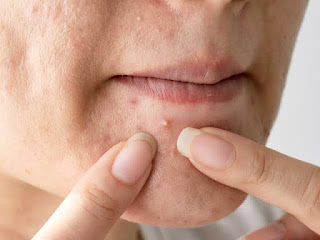In today’s skincare world, new trends seem to pop up every day, with many promising benefits for your skin and face. Among the most popular are **Face Yoga** and **Lymphatic Drainage**—two techniques that claim to rejuvenate and tone your face. But how much of this is backed by science? Let’s break it down!
**What is Face Yoga?**
Face yoga involves a series of exercises designed to strengthen, tone, and relax the muscles in your face. Just like body yoga helps tone your muscles, face yoga aims to lift sagging areas, reduce wrinkles, and improve overall facial appearance.
Some of the common exercises involve:
- **Puffing your cheeks** and holding air to target cheek muscles.
- **Raising eyebrows** to reduce forehead lines.
- **Tightening the jaw** to lift the lower face.
These exercises have gained popularity through social media influencers, celebrities, and wellness enthusiasts, promising a non-invasive way to maintain a youthful appearance.
**What Does the Science Say?**
While **face yoga** does engage muscles and may improve circulation in the skin, the **scientific evidence** supporting its claims is limited. Some research suggests that facial exercises can temporarily improve muscle tone and possibly reduce the appearance of fine lines, but there is **no substantial evidence** to show that it can dramatically change the shape of your face or reverse aging (such as lifting sagging skin).
A study published in the *JAMA Dermatology* journal did find that regular facial exercises may enhance the appearance of facial muscles, making them appear firmer. However, it is important to note that this effect was subtle and may not be a long-term solution for people seeking significant anti-aging results.
**What is Lymphatic Drainage?**
Lymphatic drainage refers to the process of helping your body’s lymphatic system eliminate toxins, waste, and excess fluid from the tissues. This can be achieved through **manual lymphatic drainage (MLD)**, a specialized massage technique designed to stimulate lymph nodes and encourage fluid movement.
In recent years, lymphatic drainage has been incorporated into facial treatments (often called facial lymphatic drainage) where gentle massage strokes are used to promote fluid flow, which is believed to reduce puffiness, improve skin tone, and reduce fine lines.
**What Does the Science Say?**
There is more scientific backing for **lymphatic drainage** than for face yoga. Lymphatic massage can help reduce **fluid retention**, especially around the eyes and jawline, leading to a fresher and more youthful appearance. Some studies have shown that **MLD** can effectively reduce puffiness and improve the skin’s overall texture by enhancing blood circulation.
However, it’s important to note that the results are **temporary**. For more permanent effects, a combination of good skincare, healthy lifestyle, and professional treatments may be needed. Lymphatic drainage works best in conjunction with other methods, and it’s also a **great complement** to treatments like Botox or fillers.
**Face Yoga: Fluff or Science?**
Face yoga certainly isn’t harmful, and there’s a chance it may temporarily tighten and tone the face. However, there’s no magic here. If you’re looking for more substantial or long-lasting effects, face yoga alone might not be enough. It’s best to see it as a **complementary** addition to your skincare routine, not a substitute for professional treatments.
**Lymphatic Drainage: Fluff or Science?**
Lymphatic drainage holds more promise, particularly for those dealing with **puffy skin or water retention**. It can certainly be beneficial as part of your overall skincare routine, but again, results are generally **temporary**. It’s effective for detoxifying and helping skin look brighter and more sculpted, but it doesn’t cure skin conditions on its own.
**How to Incorporate Both into Your Routine**
If you’re intrigued by both techniques, here’s how you can add them to your skincare regimen:
1. **Face Yoga:**
- Practice 10–15 minutes a day. You can do this while watching TV or before bed. Focus on lifting your brow area, toning your cheeks, and massaging your jawline.
2. **Lymphatic Drainage:**
- You can visit a professional for lymphatic drainage massage, or you can try **at-home tools** like jade rollers or gua sha. Make sure to follow gentle, upward strokes to avoid pushing fluid back into the face.
**When to See a Dermatologist**
If you’re seeking more significant anti-aging effects, or if you’re dealing with persistent skin issues like **puffiness** or **sagging**, it’s important to consult with a dermatologist. At *Dr. Rizwan’s Skin, Cosmetic & Laser Clinic*, we can recommend treatments that **target deeper layers of the skin** and provide long-lasting results, such as **laser toning**, **Botox**, and **fillers**.
**Bottom Line:**
Both **Face Yoga** and **Lymphatic Drainage** can have positive effects on your skin in terms of circulation, fluid retention, and minor toning. However, don’t expect miracles from these techniques alone. Incorporating them into a well-rounded skincare routine can certainly enhance your results, but for more serious concerns, a combination of professional treatments and lifestyle changes is key.
















































.jpeg)